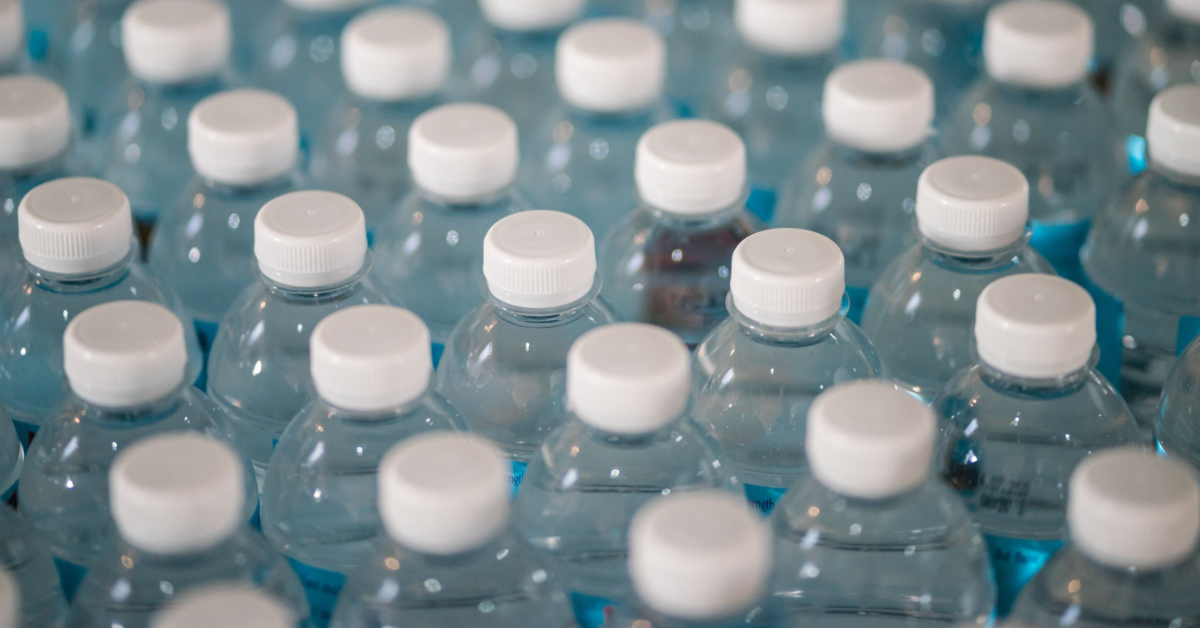Unveiling the Global Dominance: How Bottled Water Became an Everyday Necessity
Discover the remarkable journey of bottled water, from its humble beginnings to global ubiquity. Explore how convenience, changing consumer habits, and environmental concerns have contributed to its unprecedented rise.

In an era where convenience reigns supreme, one item has taken over the world, one sip at a time - bottled water. From bustling urban centers to the most remote corners of the planet, bottled water has become an everyday necessity for millions. But how did this seemingly mundane commodity rise to global dominance? In this blog, we'll unveil the fascinating story of how bottled water became an integral part of our lives, shaping not only our hydration habits but also the environment we live in.
The Humble Origins
Bottled Water's story begins with a humble origin. It was once considered a luxury item, reserved for special occasions or travelers in need of hydration. In the early days, people relied on tap water for their daily drinking needs. The idea of purchasing water in a plastic bottle seemed absurd. However, as the old saying suggests, when we really need something, it often sparks our creativity and innovation.
The Convenience Factor
The turning point for bottled water was the convenience it offered. Busy urban lifestyles and the on-the-go culture of the late 20th century created a demand for portable hydration. Plastic bottles, lightweight and easy to carry, quickly became the vessel of choice. Suddenly, quenching your thirst became as simple as grabbing a bottle from the nearest store or vending machine. It was a revolution in hydration convenience.
Consumer Behavior Shift
Consumer behavior played a pivotal role in the rise of bottled water. People started choosing bottled water over sugary drinks and carbonated sodas in their pursuit of a healthier lifestyle. The perception that bottled water was purer and safer than tap water also contributed to this shift. It became a status symbol of sorts, with brands touting their water's source and purification methods.
Environmental Concerns
However, as the popularity of bottled water soared, so did concerns about its environmental impact. The very convenience that made it attractive also led to a massive increase in plastic waste. Bottles ended up in landfills, oceans, and waterways, contributing to a global plastic pollution crisis. This paradox - the pursuit of health through bottled water leading to harm to the environment - triggered a significant shift in public perception.
The Push for Sustainability
As the environmental consequences became more evident, consumers and activists began demanding sustainable alternatives. This push for eco-friendly practices led to innovations such as biodegradable bottles and increased recycling efforts. Brands, too, started investing in more sustainable packaging and water-sourcing methods, recognizing the need to align with changing consumer values.
The Global Beverage Industry
The bottled water industry is not just about quenching thirst; it's big business. Beverage giants, once focused on sugary beverages, saw the potential and entered the market. This shift in the beverage industry landscape further solidified bottled water's global dominance. Companies like Nestlé, Coca-Cola, and PepsiCo expanded their portfolios to include a wide range of water brands.
The Cultural Shift
The cultural shift towards wellness and sustainability has also played a significant role. People are more aware of their health and the impact of their choices on the planet. As a result, reusable water bottles and water filtration systems have gained popularity as alternatives to single-use plastic bottles. This cultural shift reflects a growing consciousness about the consequences of our consumption patterns.
The Future of Bottled Water
So, what does the future hold for bottled water? The industry continues to evolve, driven by consumer demands for healthier and more sustainable options. We can expect to see further innovations in packaging, water sourcing, and recycling methods. The battle against plastic pollution will likely intensify, with a focus on reducing the environmental footprint of bottled water.
In conclusion, how bottled water became an everyday necessity is a testament to the power of convenience, shifting consumer behavior, and the impact of environmental concerns. It's a story of adaptation, innovation, and the complex relationship between human needs and the environment. As we move forward, it's essential to strike a balance between our convenience-driven lifestyles and the preservation of our planet. Perhaps the next chapter in this story will be one of sustainability and responsible consumption, ensuring that the convenience of bottled water doesn't come at the cost of our environment.
ALSO READ
Uttarakhand: Chief secy orders action against illegally parked vehicles for convenience of Chardham pilgrims
Hidden Cost of Convenience: How Pakistan's Balloon LPG hinders achieving sustainable goals
Single.id Integrates with Mad Over Donuts, Enhancing Customer Loyalty and Convenience
Sebi streamlines KYC compliance guidelines for enhanced investor convenience










